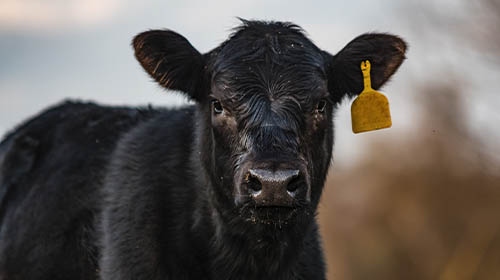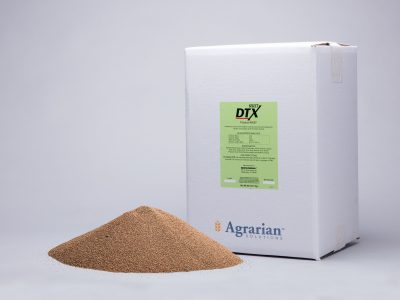Everyone Knows

John Doerr, Ph.D., PAS, Dpl. ACAP - Vice President, Science and Technology - Agrarian Solutions
Conventional wisdom in the mycotoxin world says that a non-lactating bovine is probably less sensitive to dietary mycotoxins than one expected to produce milk. Everyone knows that! Maybe not, according to the World Mycotoxin Journal, 2020. Researchers from Oregon State and the Biomin Research Center in Austria published an interesting study on Fusarium toxins in beef cattle. In a nutshell, this was what they found:
Robotically fed Angus steers were fed carefully controlled TMR with the toxin ration containing 1.7 ppm DON, 3.5 ppm fumonisins, 242 ppb nivalenol, and 85 ppb zearalenone. Eight other toxins tested were below limit of detection. Body weights were significantly (P<0.05) lower in treatment vs. control for 4 of the 5 weeks of the trial (treatment diets were fed weeks 0-3 and recovery diets, weeks 4 & 5). There were trends (P<0.10) and suggestive P values in rumen fluid markers (pH, protein, ammonia). Body weight did not recover during the trial. [Duringer, et. al (2020). Effects of deoxynivelenol and fumonisins fed in combination on beef cattle: health and performance indices. World Mycotoxin Journal 13 (4), 533-542]
Here’s what’s really interesting. First, there were only 12 animals in the study. Ask your nearest research scientist – getting statistical significance in a mycotoxin feeding study with such a low number of test animals is huge. Second, while most of the markers measured returned to ‘normal’ during the two-week recovery phase, body weight did not. That might be an omen for later feedlot success/failure. Third, the levels of toxins fed in this study are considered, in most parts of the world, to be ‘low’, yet substantive problems arose from the combination. Fourth, the authors strongly warned that the known individual immunological effects of these toxins could well portend unhealthy animals after exposure, even with such low levels of these mycotoxins in combination. So, maybe everyone doesn’t really know!

What’s a few pounds in finish weight? Or a need for additional veterinary treatments? Or, perhaps, not quite the carcass grade you were expecting? Maybe this is the time you began trying out Select DTX for yourself. Let a larger number of animals tell you if a few cents/hd/day gives you an advantage over the next feedlot. Next month, Agrarian Solutions will be running a two-month promotion on this cutting-edge approach to mycotoxin control. Ask your Select Sires or Agrarian rep for details and more information. But, then, everyone should know that!
